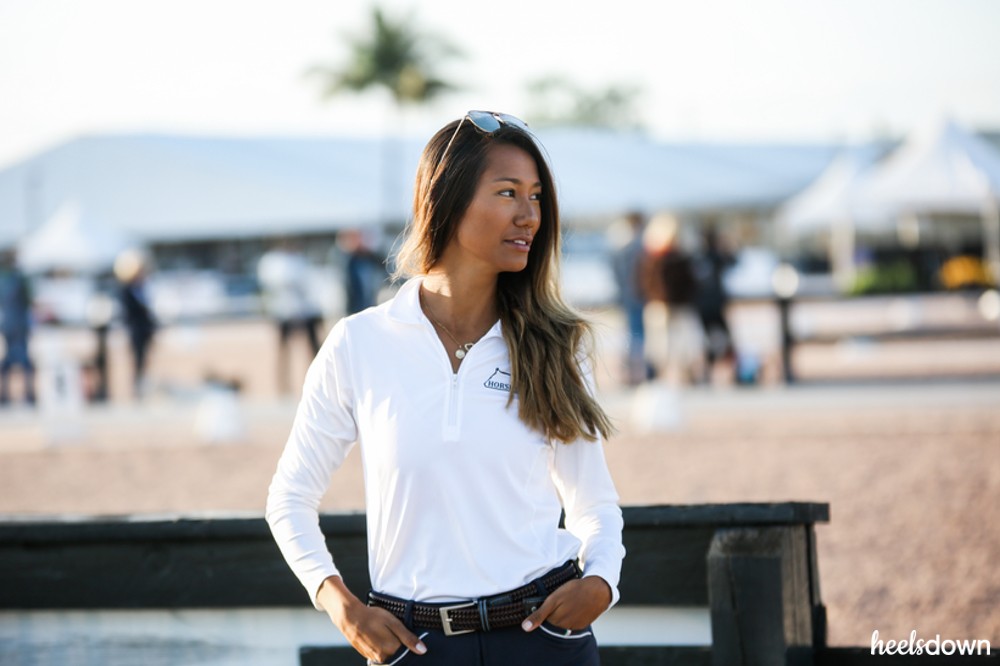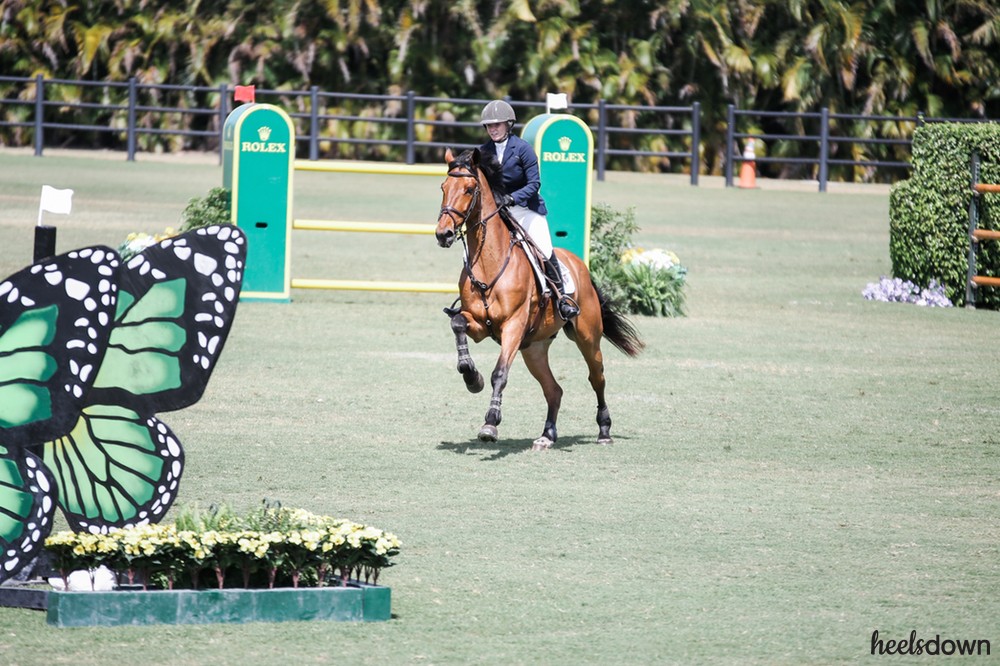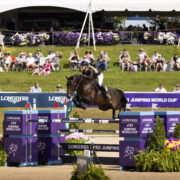Why Dressage Matters for Jumpers

International grand prix dressage rider Ellesse Jordan Tzinberg isn’t just a competitor – she’s also a coach. Teaching both dressage riders as well as jumper riders, Ellesse sees the benefit of a dressage foundation, no matter the discipline. She explains why dressage is important for show jumpers.
I’ve been coaching dressage for three years now. I’ve travelled as far as Australia to teach clinics. It’s actually worked out really well because Henrik (Gundersen), my fiancé, is a jumper and he coaches jumpers so we’ll do the clinics together. I’ll teach dressage, he’ll teach jumping and then the jumpers will get a flat lesson from me as part of the clinic. This past season in Wellington, I started helping a lot of jumpers ride their horses that needed more dressage basics. That trickled and flowed into teaching students at those barns. It’s not classic dressage, but it’s dressage foundations and dressage basics that can help their jumping.
Normally, a lot of the riders have had a background in dressage but I would say that it hasn’t been explained to them how important it is for them to use. They know what dressage is, and they know the basics. They know how to round the horse up, how to extend, how to collect – but I don’t think they’ve really been shown how it can be applied to their jumping. To me, there’s no point getting a dressage lesson on your jumper if you don’t know how it’s going to help you in the ring and how you can use it in your jumping courses.
It’s not classic dressage, but it’s dressage foundations and dressage basics that can help their jumping.
Why Is Dressage Important For Jumpers?
Dressage is really important for control – not only backward control but also forward control. You know how much you can push your horse and how much time you need to bring them back. Turns are everything in jumping, so how tight and how balanced your turns are is really important. Dressage is also great for the overall fitness and health of the horse. Dressage horses are extremely fit horses. They’re extremely muscled horses so a lot of the jumpers may need to build a better topline to stay sound and strong, especially in their backs. To do that, they need to learn to lift their stomach up. It’s a balance between riding well, having a horse that performs well but also for having a healthy horse.

How Does Dressage Affect Jumping Performance?
How quickly you see a difference depends on the horse, but I see a really big difference in a lot of riders in the way they ride. They are just more aware when they go around, especially when they do it over and over again. Dressage is very repetitive so when they ride every corner perfect, or when they ride every turn balanced, it transcends into their jumping. Now they are riding their courses with balanced corners and all of a sudden, their approaches are better. They have a better distance to jumps. That’s probably the quickest difference that I see.
Read this next: Riding the Tense Horse
With the horses, their muscles start to change in a matter of four-to-six weeks. You see them develop more back muscle. We try to get rid of that ‘under neck’ and develop a lot more on top of the neck. You see them get stronger in their canter. Often, jumpers will have one weak side when they will drift to one side more than the other. A lot of times that’s because they are weak on one side. I have the riders feel that on the flat, and then we correct that and strengthen them. And then all of a sudden, their jump becomes much better, and the shape of the jump comes better.


